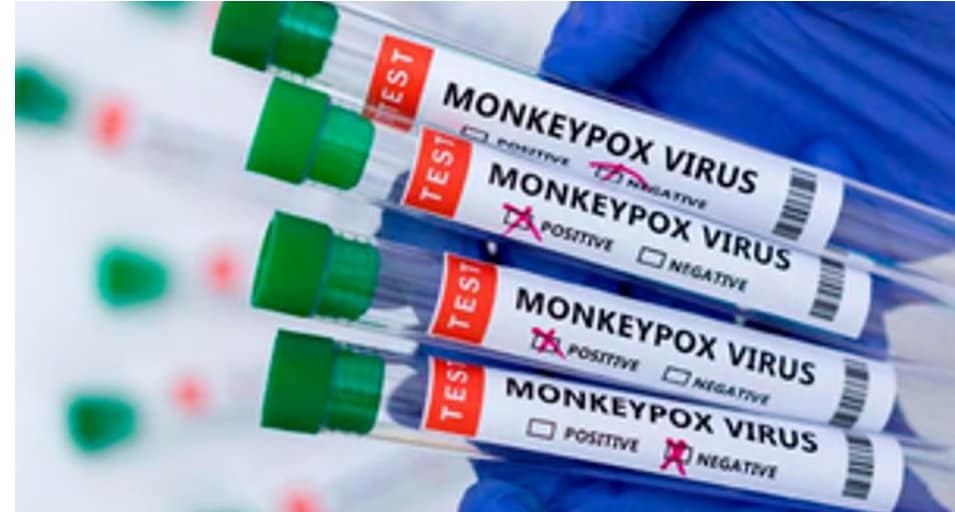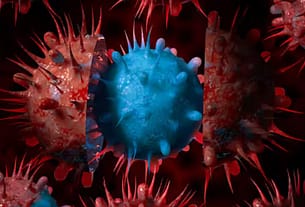Kerala reported a second monkeypox (Mpox) case after a man who returned from abroad tested positive for the disease in Ernakulam on Friday.The man who reportedly returned from the UAE has been admitted to a private hospital in Kochi and is stable.The contact list of the patient has been prepared, and preventive measures have been taken, reported PTI quoting state Health Minister Veena George.
Indian Mpox Scenario in 2024
On September 23, India reported its first case of Mpox Clade 1b strain, that triggered the World Health Organisation (WHO) to declare a public health emergency, in a 38-year-old man from Kerala, who had recently returned from the United Arab Emirates (UAE).
“The Clade 1b strain has been found in a 38-year old man from Kerala’s Malappuram district who had tested positive last week,” official sources said.The patient is currently stable, and had recently returned from the UAE, they said.The Kerala patient is the second Mpox case detected in India since the WHO declared it as a public health emergency of immediate concern (PHEIC) last month after a surge in cases in African countries.
The earlier case of Mpox had emerged in New Delhi, with a 26-year-old man from Hisar in Haryana testing positive for the previous West African Clade 2 strain, which was not a part of the WHO warning. “The patient has been discharged on Saturday,” the source added.
What is Mpox and How It spreads
Mpox or monkeypox is a zoonotic disease, which can be transmitted through direct contact with infectious skin or other lesions (mouth, genitals). Caused by an Orthopoxvirus, mpox was first detected in humans in 1970, in the DRC. The disease is considered endemic to countries in central and west Africa.Infection can also occur via use of contaminated objects such as clothing or linens or in a community setting.
Mpox infections are generally self-limiting, lasting between two and four weeks, and patients usually recover with supportive medical care and management.It is transmitted through prolonged and close contact with an infected patient.
Mpox typically manifests itself with fever, rash and swollen lymph nodes and may lead to a range of medical complications.
WHO Declares Mpox as Public Health Emergency
On 14th August ,2024 WHO Director-General Dr Tedros Adhanom Ghebreyesus has determined that the upsurge of mpox in the Democratic Republic of the Congo (DRC) and a growing number of countries in Africa constitutes a public health emergency of international concern (PHEIC) under the International Health Regulations (2005) (IHR).
In declaring the PHEIC, Dr Tedros said, “The emergence of a new clade of mpox, its rapid spread in eastern DRC, and the reporting of cases in several neighbouring countries are very worrying. On top of outbreaks of other mpox clades in DRC and other countries in Africa, it’s clear that a coordinated international response is needed to stop these outbreaks and save lives.”
Committee Chair Professor Dimie Ogoina said, “The current upsurge of mpox in parts of Africa, along with the spread of a new sexually transmissible strain of the monkeypox virus, is an emergency, not only for Africa, but for the entire globe. Mpox, originating in Africa, was neglected there, and later caused a global outbreak in 2022. It is time to act decisively to prevent history from repeating itself.”This PHEIC determination is the second in two years relating to mpox.
In July 2022, the multi-country outbreak of mpox was declared a PHEIC as it spread rapidly via sexual contact across a range of countries where the virus had not been seen before. That PHEIC was declared over in May 2023 after there had been a sustained decline in global cases.
Committee Chair Professor Dimie Ogoina said, “The current upsurge of mpox in parts of Africa, along with the spread of a new sexually transmissible strain of the monkeypox virus, is an emergency, not only for Africa, but for the entire globe. Mpox, originating in Africa, was neglected there, and later caused a global outbreak in 2022. It is time to act decisively to prevent history from repeating itself.”
In July 2022, the multi-country outbreak of mpox was declared a PHEIC as it spread rapidly via sexual contact across a range of countries where the virus had not been seen before. That PHEIC was declared over in May 2023 after there had been a sustained decline in global cases.
African Mpox Scenario in 2024
Till 27th September 2024 a total of 32,407 cases of monkeypox, including 6,441 confirmed cases and 840 deaths, have been reported across the African continent since the start of this year, according to the Africa Centers for Disease Control and Prevention (Africa CDC).
During an online media briefing on the multi-country mpox outbreak in Africa Thursday evening, Africa CDC Director-General Jean Kaseya said the continent reported 2,910 new cases in the past week alone, including 436 confirmed cases and 16 deaths, bringing the total number of cases this year to 32,407.The emergence last year and rapid spread of a new virus strain in DRC, clade 1b, which appears to be spreading mainly through sexual networks, and its detection in countries neighboring the DRC is especially concerning, and one of the main reasons for the declaration of the PHEIC.
Indian Union health ministry reponds
The union health ministry had earlier this month directed all states and Union Territories (UT) to review their public health preparedness, along with screening and testing of all suspected cases of Mpox.





